Editor’s note: The author of this piece is being kept anonymous under a pseudonym to protect them from professional retribution.
As a student with a physical disability, I am shocked by the lack of accessibility at Vanderbilt University, the extensive efforts I have had to take to communicate my concerns and the significant lack of proactive systems in place to handle basic accessibility issues. Given Vanderbilt’s recent promotion of Disability Awareness Month this March and its consistent, public and internal commitments to equity and inclusion, I can’t help but see these promotions as yet another painful reminder of the disparity between the public commitments to inclusion and reality for students with disabilities.
My lived experience since becoming disabled has shown the drastic lack of prioritization and consideration of students who are not able-bodied. I have been unable to enter buildings on campus due to inaccessible entrances – despite a large, blue handicap sign posted on the door. Additionally, multiple offices have provided conflicting and inaccurate information regarding accessibility processes on campus. It is disheartening to be treated in such a way that places such burden and grief on those of us with disabilities. We are given promises that Vanderbilt will be accessible, but our daily reality continues to be filled with uncertainty, risk of physical harm and exclusion.
If I am unable to physically enter a building because of a lack of proactive ADA oversight, how can I choose to believe in the university’s commitment to inclusion? If I continue to feel unsafe and unheard on campus because I can’t reliably know if I will be able to get where I need to be, how can I feel respected as a member of the Vanderbilt community?
It has been most shocking to learn the surprising way in which Vanderbilt currently approaches accessibility – processes that result in students bearing the burden of keeping the university accountable. This approach needs immediate, systemic action for the university’s commitment to inclusion to be realized. Whether able-bodied or not, each of us – students, faculty and staff – share the common goal of creating an inclusive space for all individuals. I ask that Vanderbilt live up to this promise in the most specific, concrete ways it can.
Alarming processes and widespread confusion across campus
There are multiple, significant bodies at the institution responsible for ensuring equity and accessibility for students, faculty and staff in the Vanderbilt community. However, some of these offices have acknowledged a lack of proactive ADA oversight at the university, particularly since COVID-19. As a result, students like me risk physical harm for basic tasks like entering a building.
Administrators have told me that Vanderbilt does not currently have an active body that regularly scopes campus for ADA accessibility. Rather, they said the university’s current approach is to wait for accessibility complaints before ADA violations are reviewed and repaired. Importantly, another accessibility office later denied this claim by sharing with me that there is a committee supposedly responsible for these proactive checks. However, this office could not provide further information aside from the pandemic as to why these violations have not been addressed. This situation is despite the entire university’s full return to campus and lack of current COVID-19 campus restrictions.
Simply put, the responsibility for keeping the university accountable for accessibility should not be placed on the student. This approach, as was the case in my experience, relies on students experiencing discrimination to prevent discrimination — a retroactive and hurtful process. It ultimately requires additional time, effort and courage from students to report violations, beyond the emotional exhaustion of navigating such basic needs at a well-resourced institution. Additionally, if ADA violations create or contribute to an unsafe environment, fixing building access after the fact would have already resulted in harm to myself and others. I have already encountered multiple physical barriers which have only been addressed after I discovered them myself when I came to campus.
I truly cannot imagine how many students, faculty and staff are not considering coming to or staying at Vanderbilt because of these problems. The places where Vanderbilt invests resources reveal true organizational priorities and commitments.
The solution
The goal of sharing these concerns is to reveal the urgent need at all levels of the university to better understand the accurate reality of accessibility on campus and to immediately restart consistent, in-depth, campus-wide accessibility reviews and repairs.
To address this problem, I strongly urge Vanderbilt to conduct immediate, proactive, regular, campus-wide reviews to address all ADA violations before they result in further preventable harm to their students.
It is still unclear when, how or if Vanderbilt is planning to proactively assess for ADA violations on campus, forcing me to actively monitor for safety and access concerns each and every time I am on campus. If accessibility offices at Vanderbilt have been unable to provide sufficient information on this matter, there is significant work to do for Vanderbilt’s commitments to inclusion to be realized.
Vanderbilt, please clarify who is responsible for maintaining ADA compliance and show us how often they meet. Let us know when the next campus-wide accessibility review is scheduled. Let us know if anyone who is disabled is represented on this committee to provide firsthand insight and recommendations. Please refrain from pointing to another office that may or may not have proactive campus reviews within their job description. The students, faculty and staff at Vanderbilt deserve a safe and inclusive environment, and we all need to hear from you.
It is not just a matter of accessing a building or parking on campus. It is a matter of safety, inclusion, respect, equity and honoring the inherent human dignity that we all possess. A disability should never hold someone back from fully engaging at an institution they attend or in a community of which they are a part, especially an institution well-resourced to make the requested progress and change that it so proudly and publicly claims to care about the well-being of its students. Taking a proactive approach to inclusion will help address multiple dimensions of diversity in our community – now, and for the years to come.
The experience of becoming disabled has taught me a lot. Perhaps most surprisingly, it has demonstrated to me the lack of support that my own university has for individuals with disabilities like me. I have had to spend more hours than I can count navigating healthcare systems because of my disability, but I was never expecting to need to do the same for my own place of learning.
To leaders at Vanderbilt: proactive, regular and campus-wide accessibility scoping is a time- and cost-effective way to prevent harm and increase access across the institution. Please follow through with your commitment to inclusion immediately. To the offices responsible and invested in campus equity, well-being and inclusion: I deeply urge you to take a look at campus, to identify and flag the barriers across campus that prevent students from being able to fully engage and to repair and resolve these violations before they cause even more harm to the students you care deeply about. I eagerly look forward to Vanderbilt becoming a more inclusive space for all individuals, and, in the meantime, to at least be able to enter through the doors I once could walk through.
Editor’s note: A university representative responded to The Hustler’s request for comment regarding the claims made in this piece. The response can be found in full below.
“Accessibility and universal design are a focus of the university’s long-range land-use planning that includes work by an accessibility advisory task force. Though campuses like Vanderbilt, where most buildings were constructed before the passage of the Americans with Disabilities Act in 1990, are not required to make all pre-existing facilities accessible by ADA standards, the university has been making accessible improvements over time.
New facilities must be readily accessible to individuals with disabilities. The Residential Colleges program contributes to the university’s strategy for enhancing campus accessibility, not only through ramps and elevators, but also through more rooms, public restrooms and entrance/exit doors that are ADA-compliant at The Martha Rivers Ingram Commons and Warren/Moore, E. Bronson Ingram, Nicholas S. Zeppos, and Rothschild colleges, and in the last Residential College currently under construction.
We have enhanced accessibility over the past few years with major capital projects and smaller, but just as important, improvements such as lowering signs, installing accessible water fountains, improving uneven sitework, upgrading elevators, etc. We are currently building a new permanent at One Magnolia Circle at the Peabody College.
In buildings that have not yet been improved from an accessibility standpoint, the Student Access Office can assist in finding a solution. Student Access provides a wide range of supports to students based on individual student need – whether it is for access to coursework or for accommodations that will help them successfully navigate our campus.
The university also makes training available to students, faculty and staff to address campus culture and to help our community members enhance their ability to respond to difference with respect and understanding.
Much work has been done, and will continue, to ensure all students with disabilities, and all members of our community, are fully included on our campus and have full access to all opportunities and resources at Vanderbilt.”



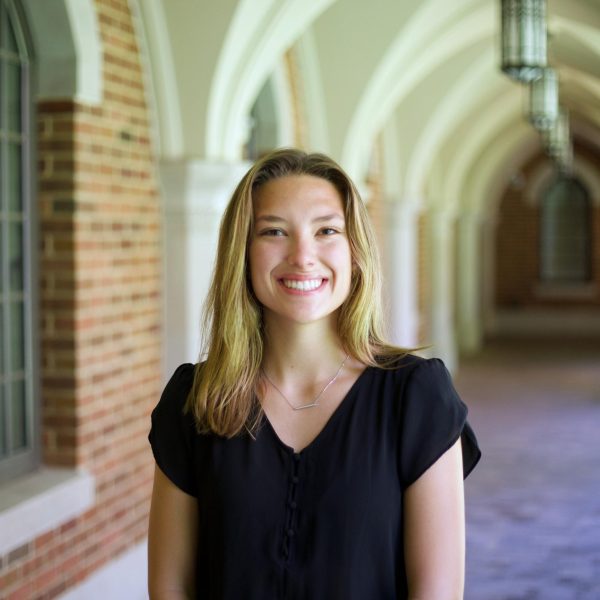
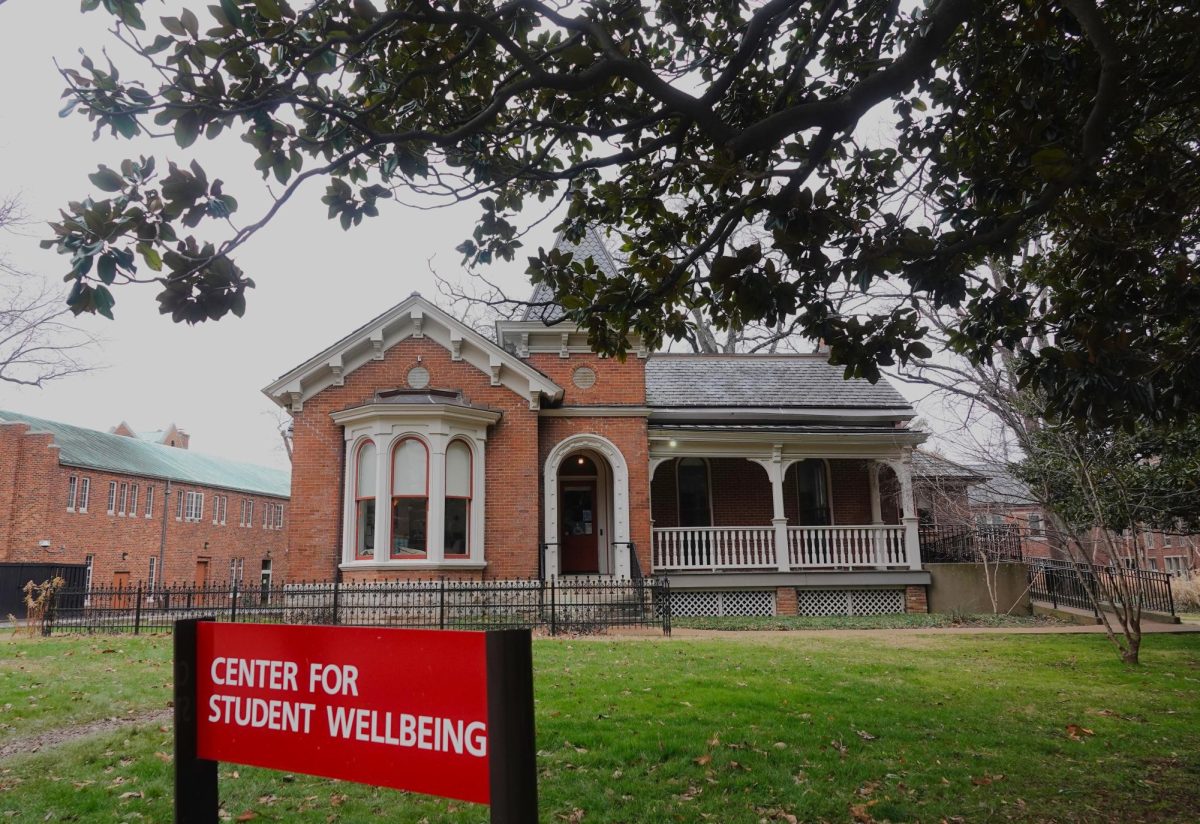
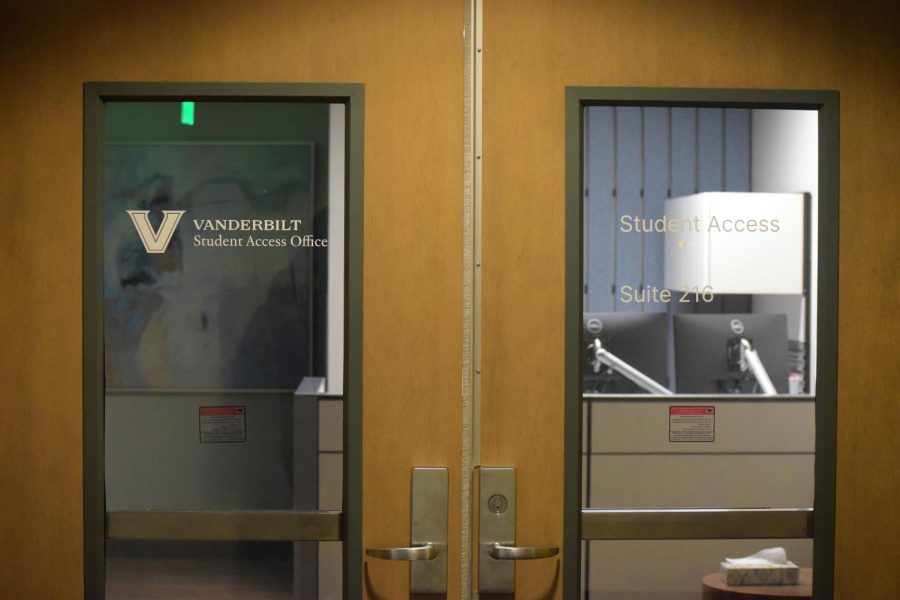


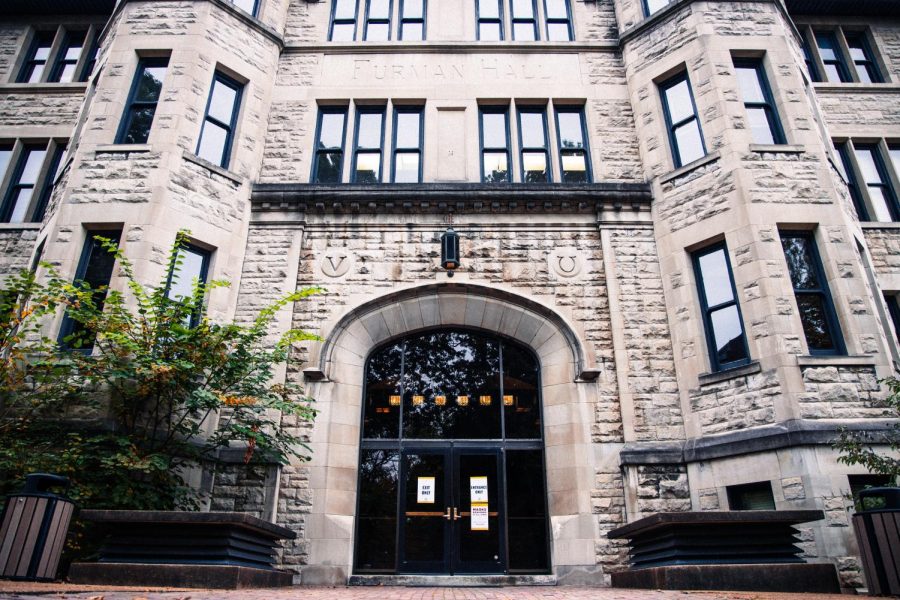
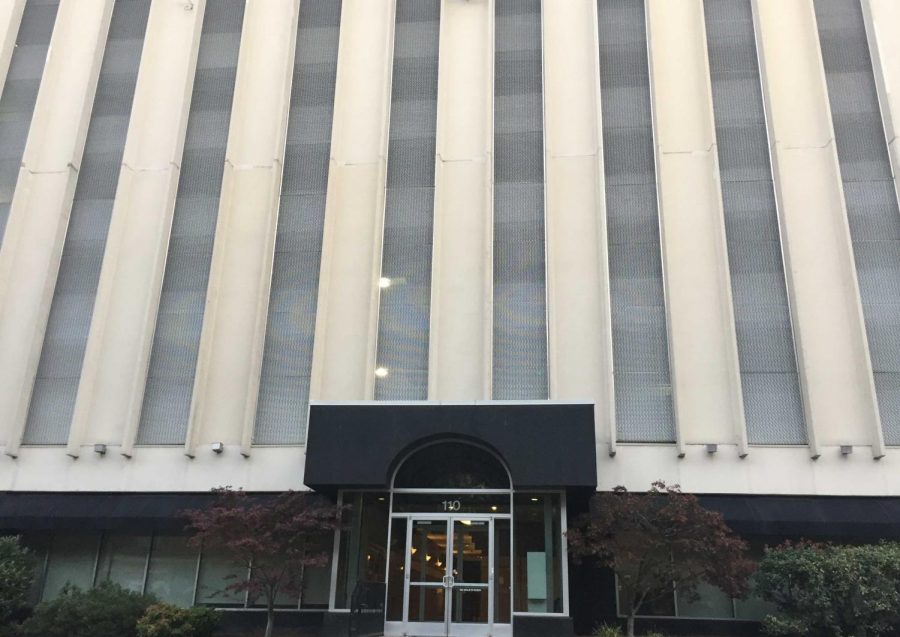
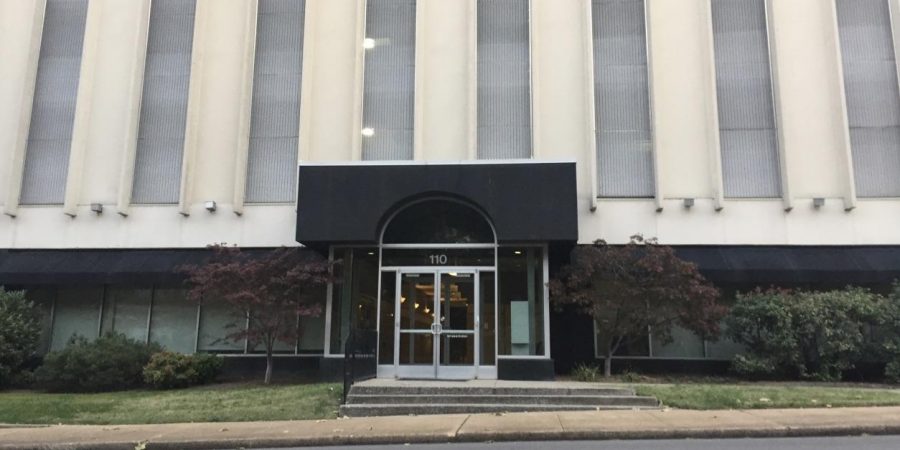
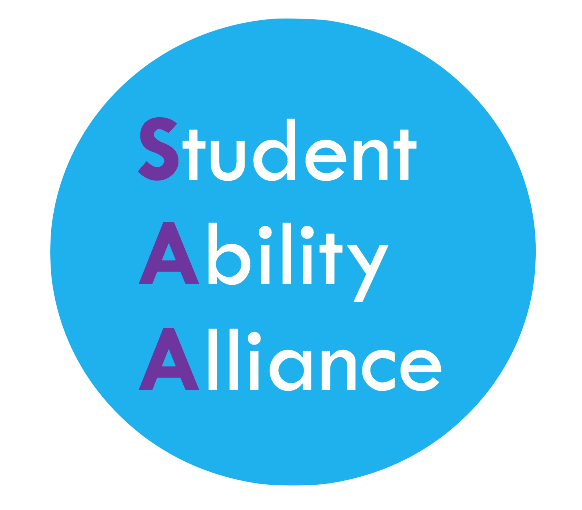
VU 2011 • Apr 4, 2023 at 7:19 am CDT
“Though campuses like Vanderbilt, where most buildings were constructed before the passage of the Americans with Disabilities Act in 1990, are not required to make all pre-existing facilities accessible by ADA standards, the university has been making accessible improvements over time. ” So basically the excuse is that most buildings were built before ADA. With all the money being spent on new buildings, Vanderbilt should put more money into making existing buildings handicap accessible.
Lauren Lobrano • Mar 31, 2023 at 2:01 pm CDT
As a Vanderbilt Alum, I stand in solidarity with the student who wrote this editorial piece. Even if most Vanderbilt buildings were built before ADA was signed, this does not mean Vanderbilt has not had ample opportunity to build a more accessible campus. Since I graduated in 1999, Vanderbilt has grown significantly in size. Some of that effort could have and should have gone toward a universal design component of the buildings. I encourage the school administration to do the right thing and address this gap in accessibility and disability inclusion.